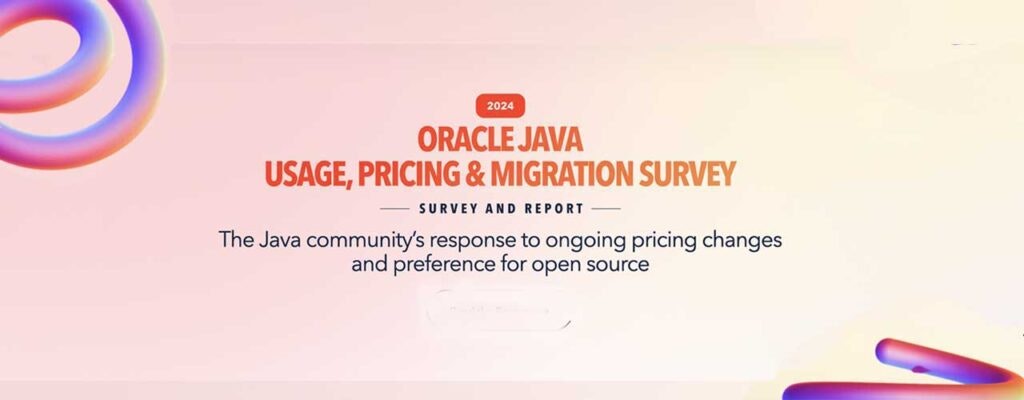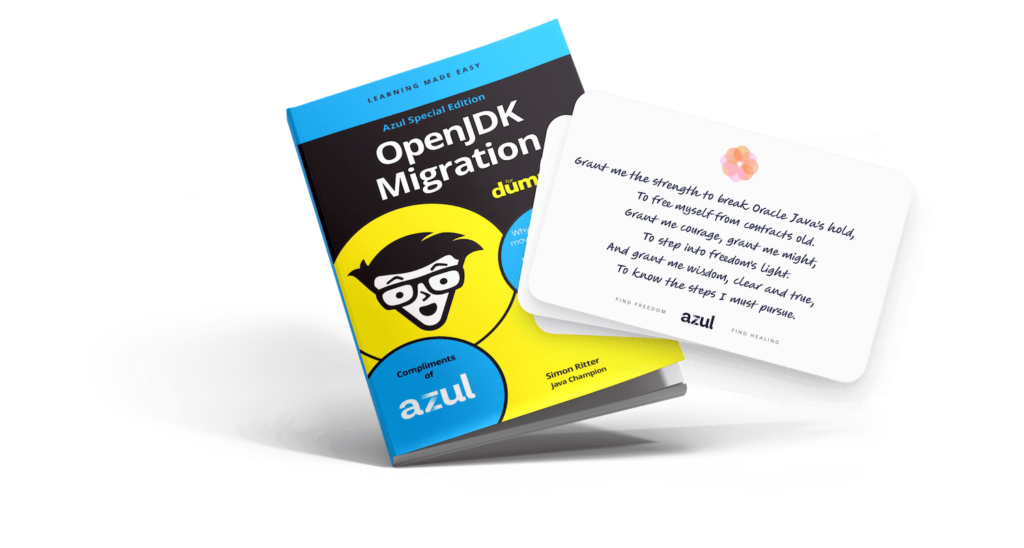
Hi. I’m Michael. Welcome to the Oracle Java Recovery Network, where healing from Oracle Java begins.
Some of you have been using commercially supported versions of Oracle Java for years, even decades. Many of you had healthy relationships with Oracle and probably thought you would be together forever. You love Java, it’s the lifeblood of your business apps, so certainly even having to process any sort of change is painful. I get it.
Unfortunately, Oracle decided to charge for the once-free versions of Java we all know, love, and depend on. In January 2023, Oracle instituted the fourth licensing and pricing change in four years, and many of us saw Java support costs skyrocket. In the recovery network, we’ve seen CTOs, CFO, and IT directors react first with shock and then with anger. Don’t worry, it’s understandable, that’s why we’re talking. And you’re not alone! In fact, in a recent report, 86% of Java users said they’re migrating off Oracle Java.

The Oracle Java Recovery Network teaches you how to process these changes in a healthier, more productive way. We guide organizations who feel trapped by long-term Oracle Java agreements and ongoing price changes through a structured six-step program.
Acceptance: Acknowledge your organization’s relationship with Oracle Java is keeping you up at night. Pricing and licensing changes are raising your costs. Audits put you in an adversarial relationship with your software provider. Once you accept the state of your relationship with Oracle, you can start doing something about it.
Determination: You have lost trust in Oracle Java after four pricing and licensing changes. You’ve taken time over the past five years to process, but you can’t wait any longer. It’s time to determine which Java (OpenJDK) provider is most cost-effective for your organization while still meeting your needs for support, expertise, security, innovation, and trust.
Courage: Embrace the courage to explore and research Oracle Java alternatives. There are many OpenJDK distributions, tested with Oracle’s very own Technology Compatibility Kit (TCK) to make sure their Java is built and runs exactly the same as Oracle. All TCK-compliant distributions are safe to use and, depending on the vendor’s commercial support options (e.g. do they offer security-only patches), provide superior safety against vulnerabilities and attacks.
Empowerment: You can say “no.” You don’t need to accept 2x-10x price increases that are not tied to your Java usage. Seize the moment and choose the Java provider that best fits your needs.
Knowledge: Your fears of migrating from Oracle Java are unfounded and there are better Java partners out there. New evidence demonstrates that 75% of organizations migrated off Oracle Java within a year, and 84% said their migration went as anticipated or easier than expected.
Action: You are ready to start life after Oracle Java and begin your migration to OpenJDK with a partner you can trust. Start preparing now by creating an inventory of your Java distributions and versions (a complete set of migration tips, tricks and templates can be found in the OpenJDK Migration for Dummies guide), before your expensive Oracle Java license renews.

Learn more about the Oracle Java Recovery Network and watch for more helpful information to come. You deserve it. Meet me in person, and you’ll find cookies and coffee in the back of the room 🙂
Oracle and Java are registered trademarks of Oracle Corporation and/or its affiliates. Other names may be trademarks of their respective owners.




